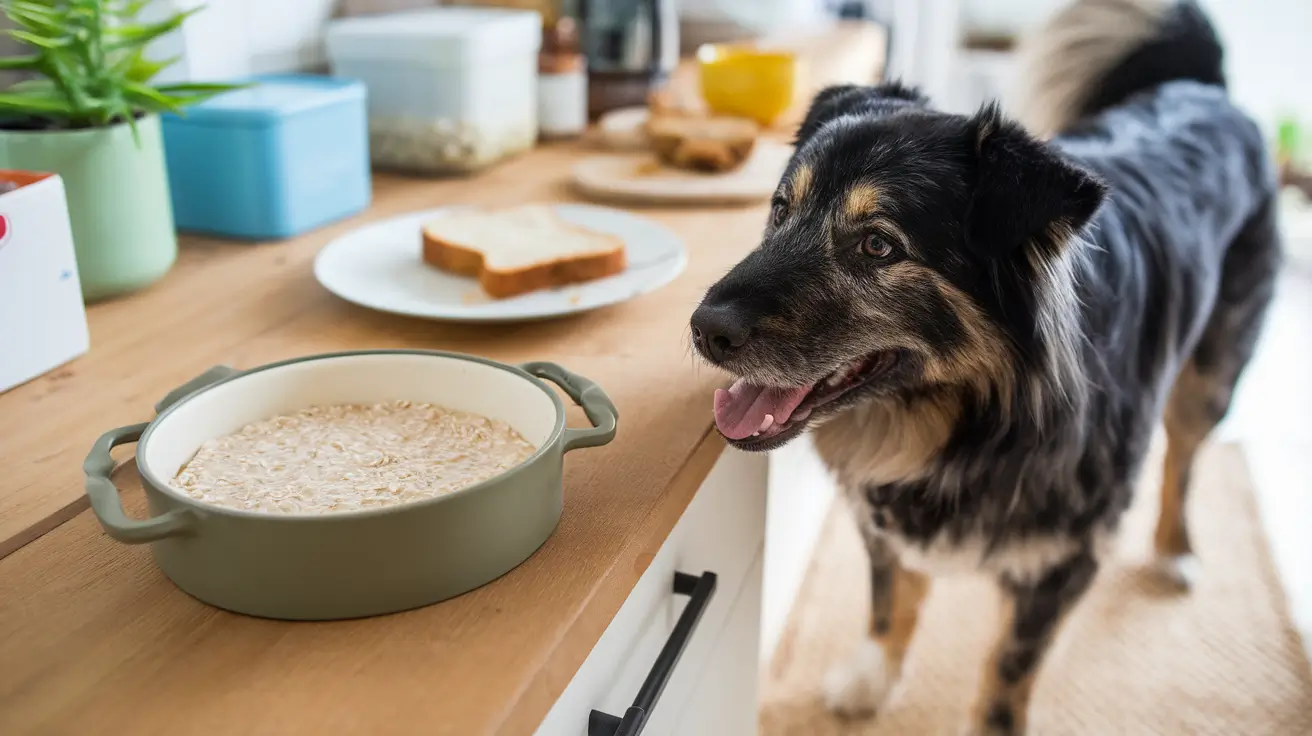Introduction to Oatmeal as a Dog Snack
Oatmeal, when cooked and fed in moderation, can be a delightful and nutritious snack for dogs. It is essential, however, to prepare it safely and avoid any harmful ingredients that could make your dog sick. By following portion guidelines and ensuring safe preparation, oatmeal can be a healthy addition to your dog's diet.
Nutritional Profile of Oatmeal
Oatmeal is packed with essential nutrients that can benefit your dog's health. It is rich in soluble fiber, which aids in digestion and helps regulate the digestive system. This is particularly beneficial for dogs that need to manage their weight, as the fiber helps them feel fuller for longer periods. Additionally, oatmeal contains vitamins and minerals such as iron, zinc, and B vitamins, which support a healthy coat and skin. It is also a good source of antioxidants and linoleic acid, an omega-6 fatty acid crucial for maintaining overall health, promoting immune system function, and supporting muscle development and bone health.
Safe Preparation Methods for Dogs
When preparing oatmeal for your dog, it is vital to avoid any extra ingredients that might be harmful. Ingredients like raisins, chocolate, and xylitol are toxic to dogs and should be strictly avoided. Instead, cook plain oatmeal using water, as milk can be difficult for dogs to digest. After cooking, allow the oatmeal to cool to room temperature before serving it to your dog. Start with small amounts to gauge your dog's tolerance, and ensure it complements their usual diet.
Portion Control Guidelines
Introducing oatmeal into your dog's diet should be done gradually. The high fiber content, while beneficial, can cause digestive upset if too much is consumed at once. Here are some general guidelines for feeding oatmeal to dogs based on their size:
- Extra-small dog (2–20 pounds): 1 teaspoon to 1 tablespoon, up to twice per week.
- Small dog (21–30 pounds): 1–2 tablespoons, up to twice per week.
- Medium dog (31–50 pounds): 1/4 cup (or less), up to twice per week.
- Large dog (51–90 pounds): 1/2 cup (or less), up to twice per week.
- Extra-large dog (91+ pounds): 2/3 cup (or less), up to twice per week.
Always monitor your dog for any signs of digestive upset, such as diarrhea, and adjust portions accordingly.
Identifying Harmful Ingredients
Not all oatmeal products are safe for dogs. Flavored or processed oatmeal often contains harmful ingredients such as chocolate, raisins, and xylitol, which can be toxic. Additionally, baked goods like oatmeal cookies may contain high levels of sugar, butter, and oil, which can be detrimental to your pet's health. Instead, opt for plain, cooked oatmeal or consider naturally sweet human foods that are safe for dogs, ensuring they adhere to the guideline that treats should only constitute 10% of their overall diet.
The Importance of Moderation
Treats, including oatmeal, should only make up a small portion of your dog's overall diet to maintain a balanced nutritional intake. It is crucial to consult a veterinarian before introducing new foods into your dog's diet, especially if your dog has pre-existing health conditions. A veterinarian can provide personalized advice and ensure that oatmeal is a safe and beneficial addition to your dog's diet.
Conclusion: Making Oatmeal a Healthy Addition
Oatmeal can be a nutritious and healthy addition to your dog's diet when prepared and served correctly. By ensuring the oatmeal is plain, cooked, and free of harmful ingredients, you can provide your dog with essential nutrients that support their overall well-being. Remember to practice moderation and consult with your veterinarian to ensure your dog's health and safety. By doing so, you can responsibly incorporate oatmeal into your pet's diet, contributing to their happiness and health.






